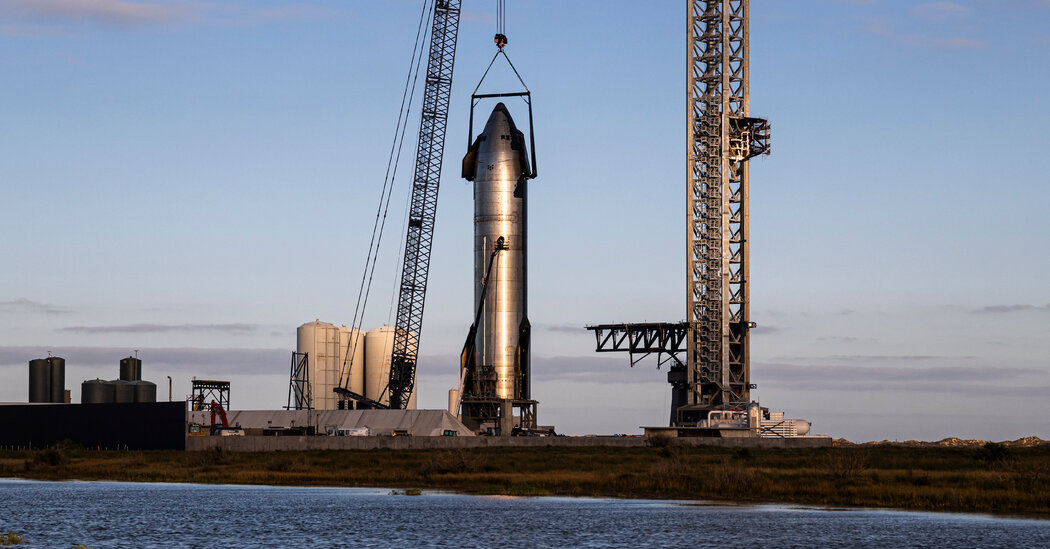As Elon Musk’s Starship — the largest rocket ever manufactured — successfully blasted toward the sky last month, the launch was hailed as a giant leap for SpaceX and the United States’ civilian space program.
Two hours later, once conditions were deemed safe, a team from SpaceX, the U.S. Fish and Wildlife Service and a conservation group began canvassing the fragile migratory bird habitat surrounding the launch site.
The impact was obvious.
The launch had unleashed an enormous burst of mud, stones and fiery debris across the public lands encircling Mr. Musk’s $3 billion space compound. Chunks of sheet metal and insulation were strewn across the sand flats on one side of a state park. Elsewhere, a small fire had ignited, leaving a charred patch of park grasslands — remnants from the blastoff that burned 7.5 million pounds of fuel.
Most disturbing to one member of the entourage was the yellow smear on the soil in the same spot that a bird’s nest lay the day before. None of the nine nests recorded by the nonprofit Coastal Bend Bays & Estuaries Program before the launch had survived intact.
Egg yolk now stained the ground.
“The nests have all been messed up or have eggs missing,” Justin LeClaire, a Coastal Bend wildlife biologist, told a Fish and Wildlife inspector as a New York Times reporter observed nearby.
The outcome was part of a well-documented pattern.
On at least 19 occasions since 2019, SpaceX operations have caused fires, leaks, explosions or other problems associated with the rapid growth of Mr. Musk’s complex in Boca Chica. These incidents have caused environmental damage and reflect a broader debate over how to balance technological and economic progress against protections of delicate ecosystems and local communities.
